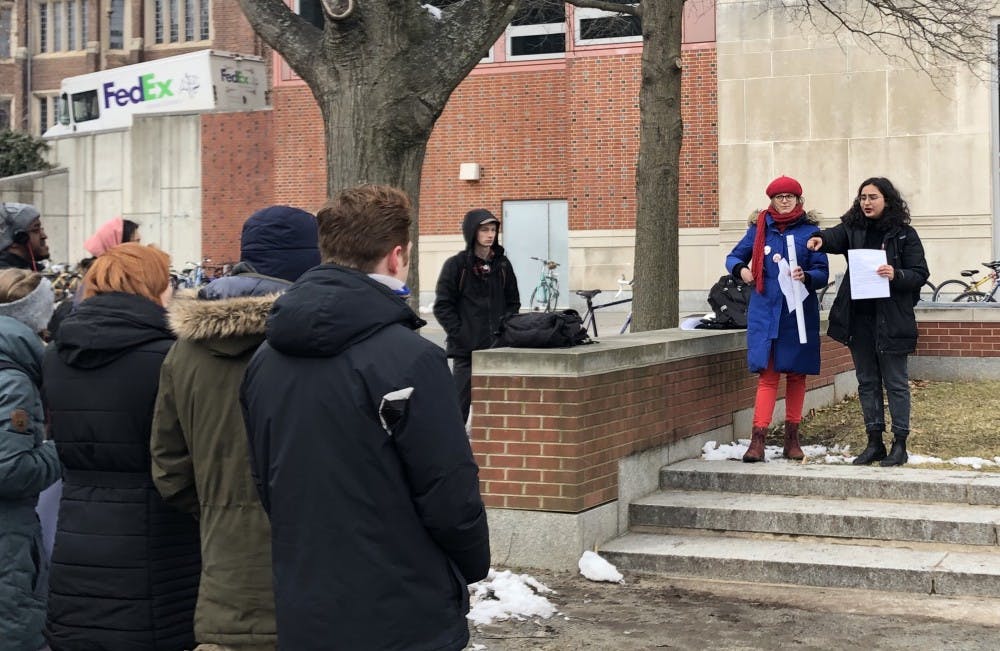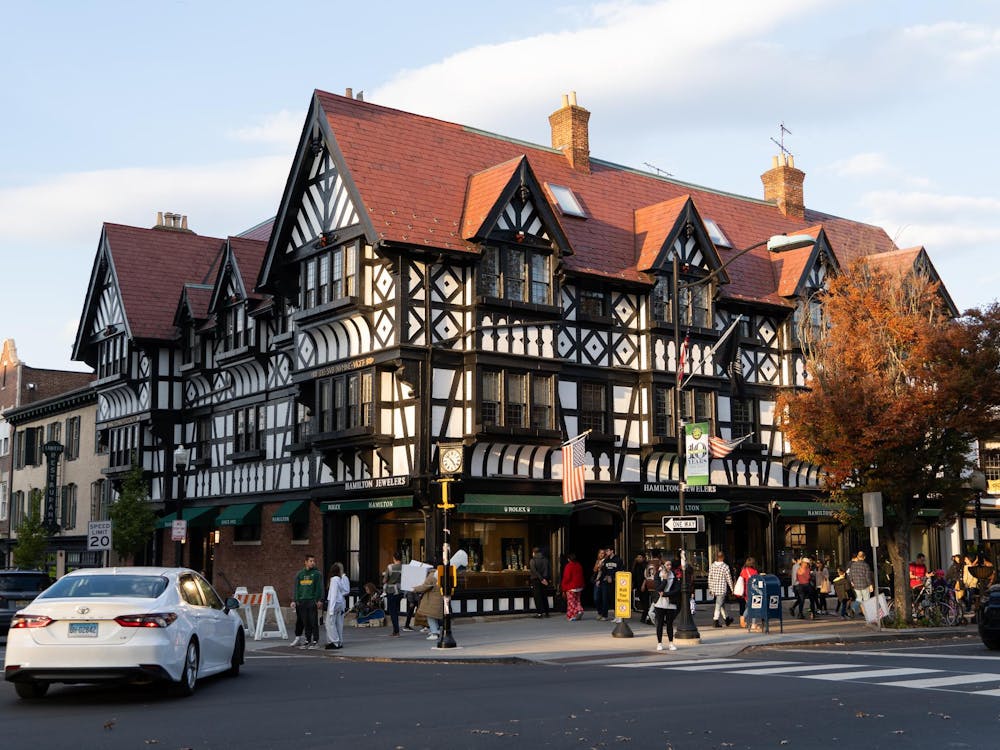At noon on Thursday, March 7, the Princeton Graduate Students United (PGSU) and the Young Democratic Socialists of Princeton (YDS) held a protest on the South Lawn of Frist Campus Center over recent changes to the University Student Health Plan (SHP).
On Feb. 13, University Health Services (UHS) announced changes to the SHP, which became effective at the beginning of March. These changes include restrictions on the number of Complementary Expense Program visits for chiropractic, acupuncture, massage, and biofeedback therapy.
Leaders of the protest allege that the change, which affects both graduate and undergraduate students on the SHP, was instituted without transparency.
In a letter handed out to students passing by, the group wrote that, instead of making the change public, the University administration “quietly updated the University Health Services website.” The letter also noted that the Graduate Student Government said it was not aware of the changes until they were officially put in place.
Third-year Ph.D. student Disha Karnad Jani GS of the PGSU told The Daily Princetonian that she shared in the frustration of other students about the recent change.
“We decided to come together and do this action precisely because it’s unfair that unilateral decisions without consultation and [with] little to no avenues for response are made by the administration, decisions which affect our living conditions as graduate students,” Jani said.
“A lot of people come here because they enjoy writing and researching and talking with their colleagues, and it’s very difficult to do that if your health care is suddenly cut without your knowledge,” Jani added.
Speakers read testimonials from University students who have used these complementary services and spoke about their own experiences. They voiced concerns that the policy changes will negatively impact students living with chronic pain and urged the assembled group to support these students.
Liane Hewitt GS, a member of the PGSU, told a group of about 20 students that she has relied on these complementary visits for her own health and finds this new restriction unfair.
“We’re fighting here for the access of higher education to all people, regardless of their own disabilities or abilities,” Hewitt said. “This is a question about the accessibility of education, just like so many of our other struggles.”
The protest began with about 10 students, a number that gradually increased as the speeches began. A few students held up signs that asked for more accountability in policy changes like this one.
After the speeches, Hewitt led the students into McCosh Health Center, where they cheered and took photos as she delivered a list of demands to the Student Health Center office.

Hewitt told the ‘Prince’ that she submitted demands for UHS to revoke its amendments to the previous policy on complementary services. She described the demands as reasonable and added that, in signing up for the student plan, she and others expect that these services will remain in place for them.
Jani and Hewitt told the ‘Prince’ that they were impressed by the student support their cause received — even on a cold Thursday afternoon — but expressed some concern about the path ahead.
“I think [the support] showed me that the only way to protect us from the University and from being vulnerable to any changes it wants to make is to form a union,” Hewitt said.
Jani added that uniting and protesting are “just one stop on a very long road to working to make our living and working conditions much better.”
On Thursday, UHS posted an online update to its intended policy change, specifically regarding acupuncture services. The original change reduced the number of complementary acupuncture visits though August from 30 to 10. The post retracted this change, and the amended SHP “will cover a total of 30 visits” between last September and this coming August.
Janet Finnie, director of University Health Services, confirmed the retraction and claimed it was in response to student feedback.
“We take student concerns very seriously,“ Finnie wrote in an email statement to the ‘Prince.’ “Based on feedback from students, we made the decision to reinstate coverage for 30 acupuncture sessions for this plan year earlier this week and announced that decision Thursday morning. This will allow us to study the associated issues and discuss them with the Student Health Plan Advisory Council (SHPAC) at its April meeting.”









